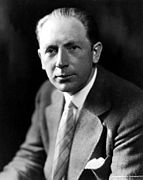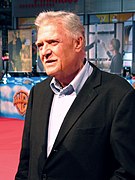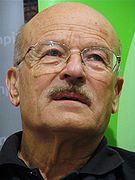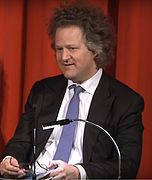
Cinema of Germany
The film industry in Germany can be traced back to the late 19th century. German cinema made major technical and artistic contributions to early film, broadcasting and television technology. Babelsberg became a household synonym for the early 20th century film industry in Europe, similar to Hollywood later. Early German and German-speaking filmmakers and actors heavily contributed to early Hollywood.[6][7]
Cinema of Germany
4,803 (2017)[2]
6.2 per 100,000 (2011)[3]
Warner (19.5%)
Walt Disney (11.5%)
Sony Pictures (11.1%)[4]
128 (60.4%)
5 (2.4%)
79 (37.3%)
122,305,182
1.48 (2017)
28,300,000 (23.1%)
€1.06 billion
German movies and German artists earned 230 Oscar nominations and 54 Oscar wins.
Germany witnessed major changes to its identity during the 20th and 21st century. Those changes determined the periodisation of national cinema into a succession of distinct eras and movements.[8]
Several institutions, both government run and private, provide formal education in various aspects of filmmaking.























